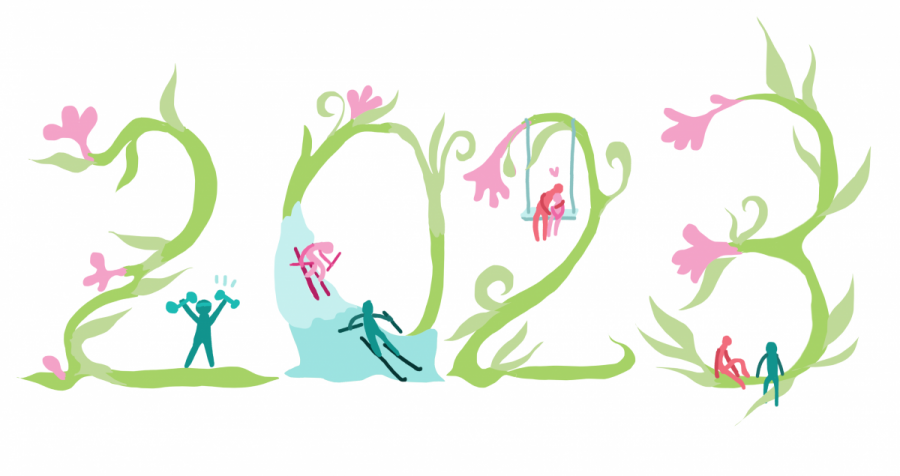Don’t @ Me: New Year’s Resolutions Suck
Building an Alternative Approach to Goal-Setting
Something about the words “New Year's resolutions” sets my teeth on edge. The phrase has become intrinsically tied with weight loss, exercise and “healthy” eating.
In a culture of people in their wellness era, being in a constant state of self-improvement can be more damaging than encouraging. Appreciating the things that are already amazing about you and your life can be a much more beneficial approach. Rather than getting down on yourself about being an imperfect person, you can celebrate your strengths and move into the new year motivated by self-respect instead of insecurity.
We are at a time now when hustle culture pushes the narrative that waking up at 5 a.m. and working around the clock are the steps to becoming a successful person. However, most can agree that this is entirely unrealistic. Setting unnecessarily high expectations for yourself is a recipe for anxiety, especially when it comes to New Year's resolutions. They are almost always tied to making more money or changing the way you look, both things you cannot easily control. A 2017 survey by U.S. company Statista showed that 84 per cent of women feel the media holds them to unrealistic beauty standards. With the expectations surrounding women's appearances constantly fluctuating, trying to keep up with the trends is unhealthy and often unattainable.
I found myself at the end of December assessing all of the things that I disliked about myself. After several years of this, I decided to scrap the tradition entirely. This is not to say setting goals for yourself is a negative thing, but I believe the culture built around New Year's resolutions is the issue. Specifically, pushing yourself to accomplish surface-level goals out of obligation rather than a genuine desire for self-improvement.
I think a more valuable practice around the turnover of the new year would be to list the things that you are grateful for. By taking the time to focus on all of the positive aspects of your life, the self-pity narrative gets flipped around. In my experience, the good things in your life can benefit you most when you acknowledge them.
For as long as I can remember, I have had the habit of attempting to overwork and felt guilty whenever I failed to meet my unrealistic goal. This has led me to countless conversations with my therapist about how to better respond to the guilt. In those moments, my therapist has pushed me to think of all the things I did well instead of getting frustrated by my perceived failure. This has been an incredible motivator for me. It has lowered my anxiety and lifted my spirits to a place where I believed in myself enough to move forward.
Focusing on what I have accomplished helped me avoid getting bogged down by not fulfilling goals that were ultimately insignificant.
Life changes throughout the year and so do your goals and intentions. We saw a great example of this in 2020 when COVID-19 hit. Everything switched, and simply adapting to get through that year was a massive accomplishment. Why beat yourself up for not hitting the gym every day when you could have celebrated yourself for making it through unprecedented times every year since the pandemic?
I believe the most important, long-lasting and fulfilling goals come through experience. In contrast, resolutions are manufactured for its own sake. No wonder so many people have identical goals of exercising and eating healthier.
So, why wait until New Year's? Not only is January a particularly challenging time with shorter days and seasonal depression, but if you want to do something, do it. Don't wait for the day to come around at the end of December. Do the work for yourself now, and don't lose steam waiting for a symbolic restart.
This article originally appeared in Volume 43, Issue 10, published January 24, 2023.







